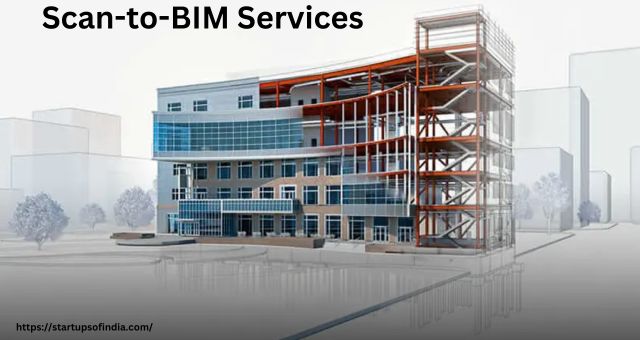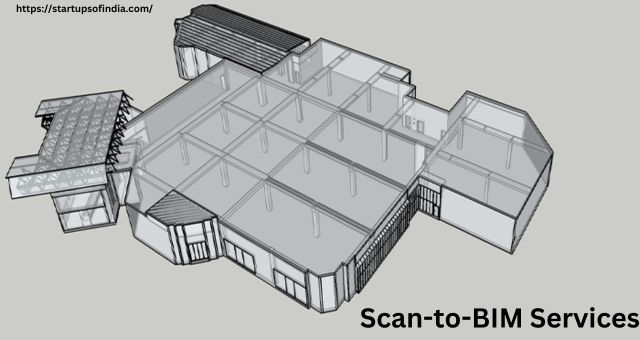Notably, Scan to BIM services involve capturing the physical environment with the help of 3D laser scanning technology and converting the outcome into a digital building information model. Moreover, you might want to know more about this topic in depth. Right? Well, in this blog, you will be provided with all the relevant and accurate information about this topic in detail. You just need to stick around with this blog till the end of the discussion. This blog is all about Scan-to-BIM Services.
Table of Contents
About Scan-to-BIM Services
Evidently, The Engineering, Architecture and Construction industry has witnessed rapid advancements recently due to emerging technologies. Moreover, among all of these technologies, one is Scan-to BIM services. It enables the professionals to streamline workflow, improve accuracy, and reduce costs.
Services
3D scanning – Notably, high definition laser scanners capture data points from the physical site. In addition to this, it creates a precise representation of the structure and the components.
Point cloud generation – Further, the scanned data is then processed into a cloud, a 3D dataset that visualises the scanned area.
Modeling – In addition to this, the cloud data is then imported into BIM software, where it is converted into an accurate and digital model.
Benefits
Accuracy
Notably, the older survey methods were prone to errors and created confusion. In addition to this, 3D laser scanning captures several data points with sub-millimeter accuracy. This ensures precise models.
Time efficiency
Evidently, it reduces the time which is required for manual measurements and model creation. In addition to this, the automated processes and advanced software streamline data capture and modeling. This accelerates timelines of the project.
Cost savings
By identifying issues in the start of the project, these services help mitigate costly work. In addition to this, the detailed model improves resource planning and reduces waste.
Risk Mitigation
Accurate models and real time construction reduces the risk of delays, errors and budget problems. This enhances the project reliability.
Challenges
High initial costs
Notably, the equipment and software which is used for 3D laser scanning and BIM can be expensive. Moreover, this investment may deter smaller firms from adopting the technology.
Skill gaps
Evidently, operating 3D scanners and BIM software requires specialised skills. In addition to this, several organisations face a shortage of trained professionals. Further, this leads to a steep learning curve.
Data management
In addition to this, cloud data is large and covers large storage and processing capabilities. Moreover, managing this data into usable BIM models can be resource intensive.
Applications
Notably, this is a valuable tool in renovation and retrofit projects, where accurate as-built models are crucial. Moreover, by scanning the structures, stakeholders can identify discrepancies between original plans and current conditions. This facilitates informed decision-making.
Construction Verification
In addition to this, during construction, it helps to verify that the project aligns with the design intent. Moreover, the scans capture progress, and deviations from the plan can be easily identified and addressed.
Facility Management
Further, when a building is operational, the BIM model works as a digital twin for facilities management. In addition to this, the model allows facility managers to efficiently plan maintenance, track assets, and optimize operations.
Heritage Preservation
Not only this, the historical structures can benefit from this service. Notably, the technology provides an accurate digital archive of heritage sites, aiding in preservation, restoration, as well as future planning.
Future
AI and machine learning – AI powered tools are developed to automate the conversion of cloud data into BIM models. Moreover, this reduces manual effort and also improves efficiency.
cloud – based solutions – Notably, the technology enables seamless collaboration by allowing the stakeholders to access and update the BIM models in real time. In addition to this, it also simplifies data storage and management.
Initiatives – Evidently, this can contribute to sustainable practices by reducing waste, optimising material usage and using energy efficient designs.

Final words
TECH: In brief, Scan-to-BIM Services is an innovative and suitable service for the AEC industry. Moreover, by using advanced technologies, the professionals can achieve great levels of accuracy, efficiency and collaboration. For organisations aiming to stay competitive, this is a suitable option. In addition to this, as the technology evolves, its impact on the industry will also grow. Tell us your thoughts on the same in the comments section. See you later in the next blog. Further, if you have any doubts or concerns on this topic, you can drop them in the comment box.
